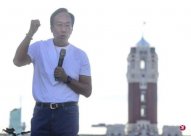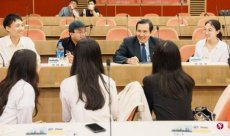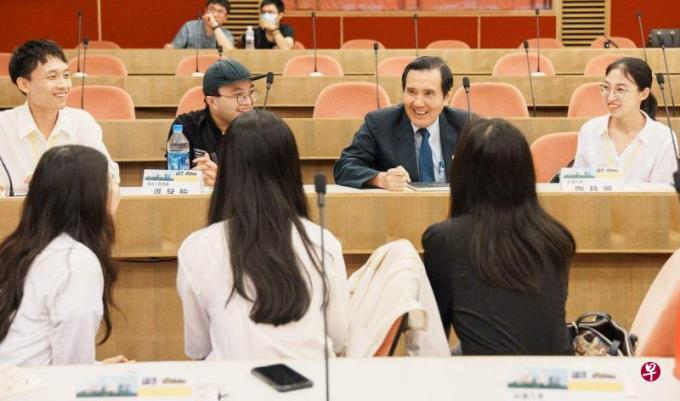
In the first summer vacation of the epidemic prevention, the academic interaction between the academic circles on both sides of the strait was restored. Former Taiwan President Ma Ying -jeou also invited Lu Sheng to visit Taiwan.However, with the unveiling of the Taiwan election campaign, Taiwan officially strengthened the review of the people in Taiwan in Taiwan, and also added variables to exchanges.In addition, Taiwanese scholars also observed that although the mainland intends to expand exchanges, the official departments have been half -effective because of the stagnation of epidemic exchanges in the past three years, and the gap in coordination.
After the 20th National Congress of the Communist Party of China last year, the mainland's epidemic prevention policy was loosened and re -opened to the outside world. The policy on Taiwan has also been significantly adjusted.Wang Huning, chairman of the CPPCC National Committee of the Mainland, also proposed at the Taiwan Working Conference in May that it is necessary to gradually resume and expand cross -strait exchanges.
Since April, cross -strait has gradually restarted physical academic exchanges, including Xiamen University Taiwan Research Institute, Shanghai International Institute of International Issues, and Taiwan ’s Chinese Academy of Social Sciences, and the School of International Affairs of Tamkang University.Seminar of the mainland.
With the summer vacation in late June, the scale of these academic exchanges has also expanded.The most representative official of the mainland to the Taiwan Institute of the Chinese Academy of Social Sciences of the Taiwan Think Tank, held a seminar on June 28 in Huzhou, Zhejiang Province.Essence
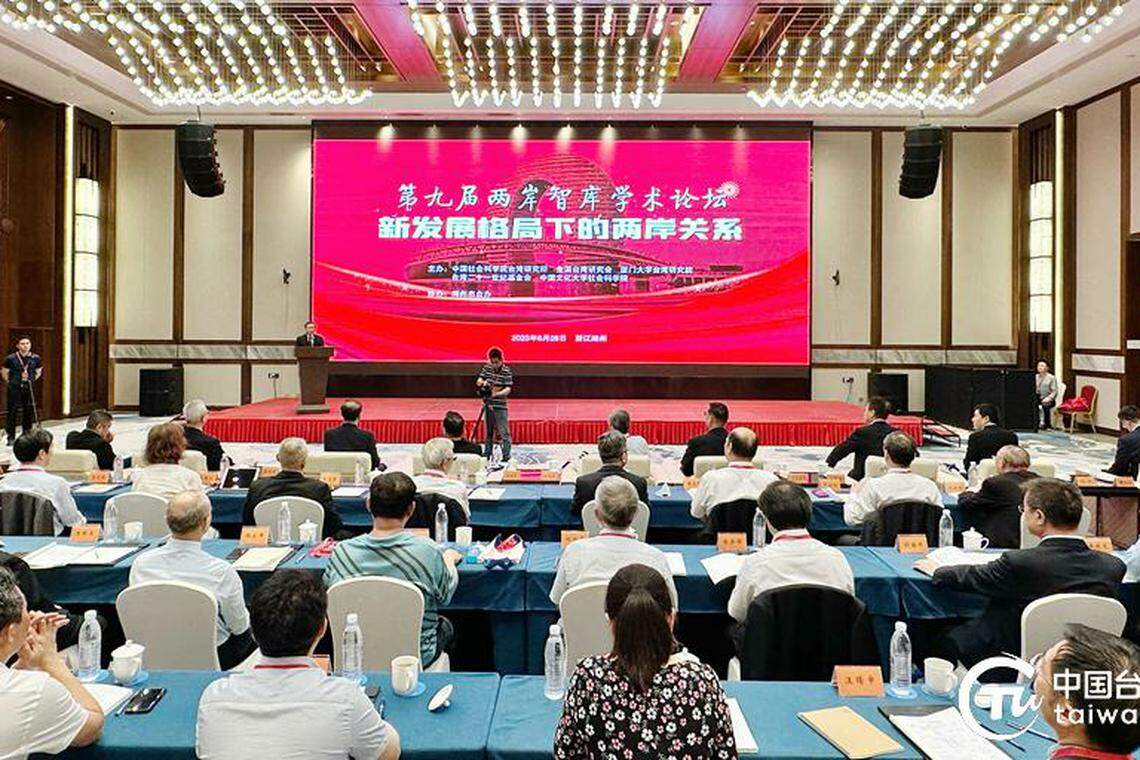
Bao Chengke, deputy director of the Shanghai East Asia Institute, pointed out in an interview with Lianhe Morning Post that recent cross -strait folk exchanges have indeed gradually recovered, and the depth and breadth of academic exchanges have made breakthroughs than before the epidemic.Especially with the end of the election brewing period in the second half of the year, and entering the substantive election stage, the impact on the cross -strait situation is bound to be more obvious.
He also mentioned that because of this, the recent academic exchanges on both sides of the strait focus on the topic of the future development of cross -strait relations and the Taiwan elections. "1992 consensus has naturally become an important theme."
Bao Chengke said that the mainland observes Taiwan's elections, especially the cross -strait policies of various camps, because this will affect the future attitude of mainland China to Taiwan.But he emphasized that the mainland will not get involved in the Taiwan election.
In addition to the active recovery of academic institutions in the coastal provinces and cities of the mainland, the School of International Affairs of Renmin University of Renmin University in Beijing also resumed the 19 -year -old annual seminar with the East Asia Research Institute of Taiwan Politburo in early July.
Kou Jianwen, director of the International Research Center of the National University of Political Science and Technology, pointed out in an interview with this newspaper that during the exchange, he did observe that the Lu side focused on the issue of Taiwan's election.However, some mainland scholars stated to him that Lu Fang would not care too much about the expressions of candidates for various camps in Taiwan during the election, but paid more attention to the action after the election. The only bottom line was "against Taiwan independence."
While continued to expand the invitation to people from all walks of life in Taiwan to communicate with the mainland, Zhan Zhihong, a spokesman for the Taiwan Government Committee, who is responsible for cross -strait affairs, stated on July 13 that the Taiwan elections are becoming more and more hot.It is necessary for agencies to strengthen the project review of mainlanders to come to Taiwan in accordance with the current process.
In this context, the exchange group formed by students from five universities in mainland China was invited to visit Taiwan by the Ma Ying -jeou Foundation, and it was also required by Taiwan. During the period of Taiwan, political activities were not possible to match the purpose of permission.
Since arriving in Taiwan on July 15th, the exchange group has focused on experiencing Taiwan's people's conditions and student life exchanges, such as self -purchases to watch baseball games, former Olympic billiard gold medal players Ding Ning and Taiwanese students communicated with Taiwanese students.National music and so on.
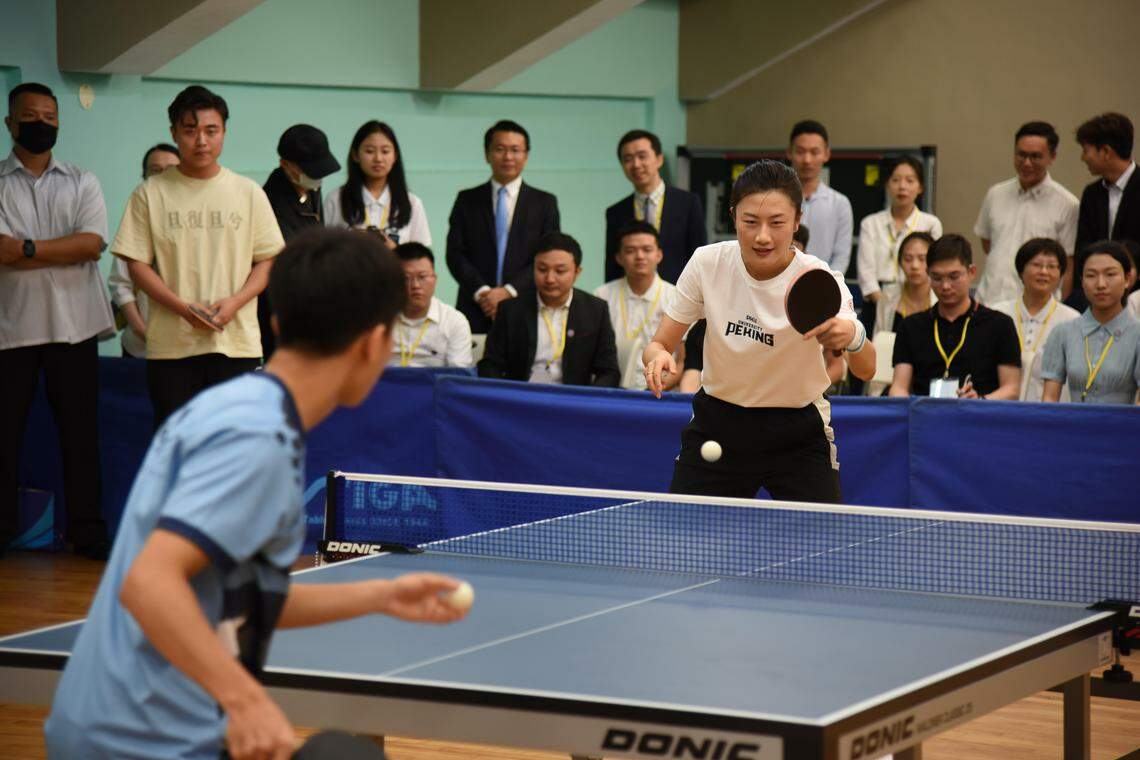
Monday (July 17) held the first closed -door discussion with Taiwanese students at the National Congress of Political Customs.The proportion of men and women of college students, etc., avoid actively touching political sensitive topics.On the contrary, Taiwanese students are curious about mainland students' views on social phenomena such as "inner volumes", their perception of the people of Taiwan, and even ask Lu Sheng what to view "Chinese dream".
Facing the sharp questions of Taiwanese students, Lu Sheng, who is responsible for answering, is competing with each other and sought good.To create the great rejuvenation of the Chinese nation, etc.
Bao Chengke analyzed that considering the tension between cross -strait relations and did not want to bring unnecessary trouble. Therefore, the mainland exchange group was carefully prepared and arranged to allow students on both sides of the strait to conduct low political exchanges.Essence
Kou Jianwen said that the communication between youth on both sides of the strait is necessary. Especially at present, mainland college students are not like Lu Sheng in Taiwan in the early years, and have special feelings for Taiwan; Taiwanese students are "natural independence" generations.The risks between the two sides will only get higher and higher.
Therefore, when Kou Jianwen had a discussion with Lu Shengtuan on the 17th, he also called on the two parties to adhere to the spirit of "goodwill and sincerity, easy to think, and understanding each other", and worry about each other's aspects, do not touch each other's taboos.
As for the trend of cross -strait exchanges, Kou Jianwen analyzed that before the end of the election, Taiwan's officials will inevitably strengthen mainland personnel to come to Taiwan for review. The personnel exchanges are "go to more (Taiwanese to the mainland; the mainland people come to Taiwan less)."
But he observed that in 2019, the Hong Kong anti -repair case incident has a certain degree of chilling effect on the people of Taiwan, and the willingness to go to land has declined. In addition, the epidemic situation in the past three years has caused exchanges.The problem of gap in coordination has caused promoting "half -effort" to communicate with Taiwan.
Kou Jianwen believes that, in addition to the above factors, the mainland should also review whether the current communication is "many or more people"?If there are many activities and many people, but they are all the same group of people, I am afraid that they cannot break through the "same temperature", and it is difficult to learn more about the diverse opinions of Taiwan's different views.

